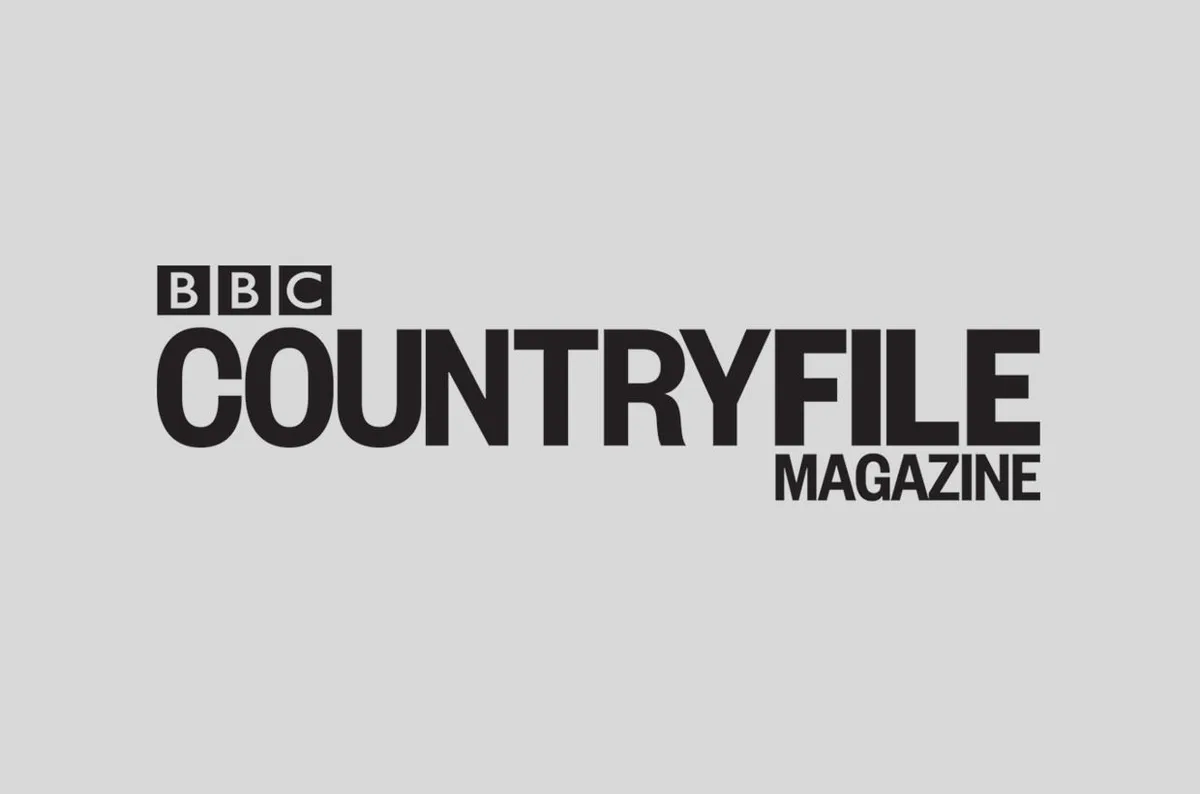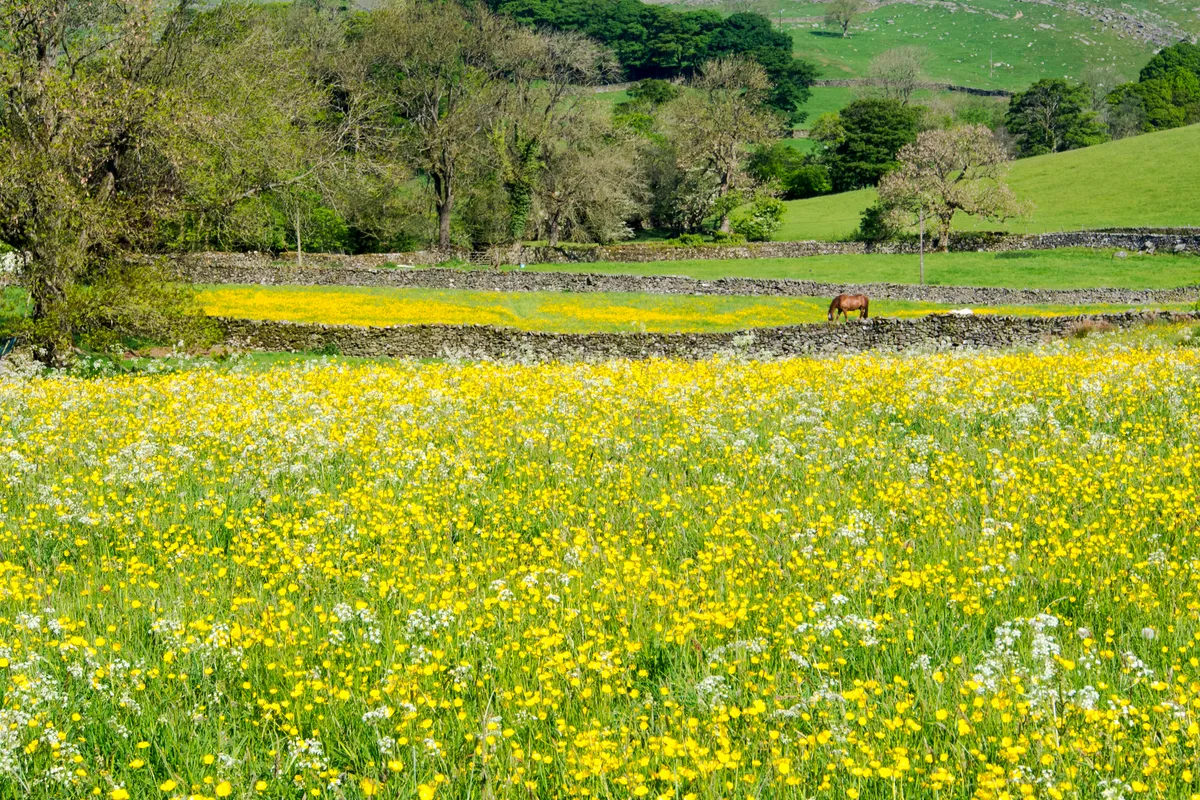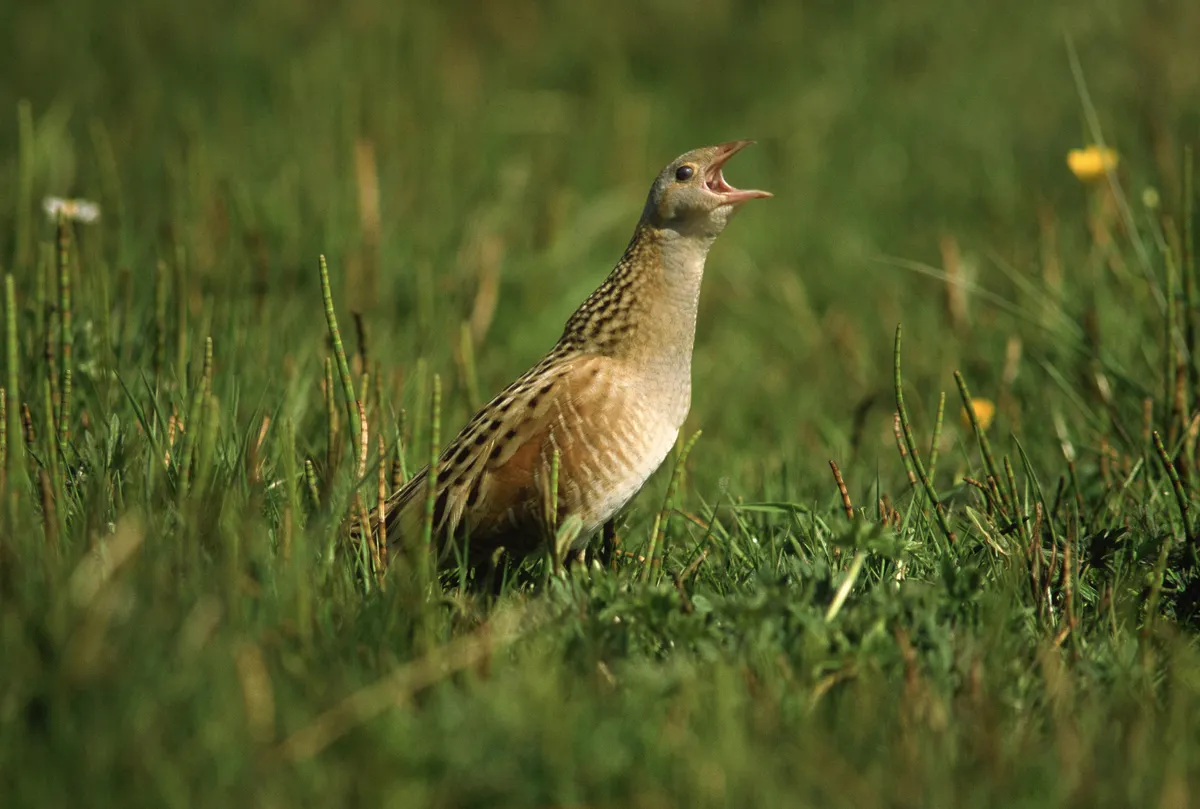
I’m a hopeless peasant. My family have farmed in Herefordshire for 900 years or so and I continue the tradition.
My book Meadowland: The Private Life of an English Field is a love letter to a field and a way of farming that’s on the verge of extinction. I wanted to record the natural life and farming life of a traditional hay meadow from both the outside, as a man with a notebook, and from the inside, as someone who farms it. Britain has lost 97% of its traditional hay meadows – which are hugely important habitats. There’s an ecological holocaust going on out there in Britain’s fields.
A traditional hay meadow can have more than 40 plant species per square metre, which in turn bring in the birds and the bees. I hope Meadowland will help awaken people to the wonder and importance of such “flowery meads”.

The tide of meadow loss can be reversed. One of the wisest things ever said was by the philosopher Edmund Burke (1729-1797): “Nobody made a greater mistake than he who did nothing because he could only do a little.” Everyone can do something, whether it’s turning the lawn – which is nothing but a meadow in captivity – into a miniature wildflower field, or petitioning the council to stop cutting verges at the wrong time, or joining a conservation charity.
We do need a ‘political’ solution. I’d like to see Parliament meet in a hay meadow in June, when it’s bursting with flowers and alive with the song of skylarks and being hawked by swallows… then politicians might get the point. Surely, if Magna Carta was signed in a field, so can a conservation charter be?
The most beautiful natural sight in Britain is a herd of traditional cattle in a Herefordshire meadow on an August evening, when the air is lazy, pink-steeped, droning with hoverflies, and the long shadows are falling. If I had a supersize magic wand, I would skip to a future that would look quite a lot like Britain 50 years ago – small farms, less doused in chemicals, bright with bird song. If it were just a small wand, I would give anyone who puts cows in sheds the year round on ‘zero grazing’ the opportunity to experience the same lifestyle. It’s called jail.

The worst thing I have ever experienced in the great outdoors was also the best thing. As a child in Herefordshire in the 1970s I saw a corncrake… it didn’t take me long to realize that it was probably the very last one in the county. I can still see that corncrake in the slightly teary eye of my mind.
When I need to get away from it all, I head to Borth in West Wales. However, if my wife and children are (understandably) in a state of revolt at the rainfall in the Welsh Borders, we go camping in Alcossebre on the Orange Blossom Coast of Spain.
My choice of rural hero is a dead heat between my hop-farming grandfather Joe Amos, and John Stewart Collis, war-time farm worker, proto-ecologist, author of The Worm Forgives The Plough. He is the man who got it: the only sustainable farming is mixed, non-intensive and not dependent on ‘icides’.
Probably The Banks of Green Willow by classical composer/ folklorist George Butterworth is the work of art that, for me, best captures the essence of the British countryside. Though close behind is Butterworth’s setting of Is My Team Ploughing Now? from Six Songs From A Shropshire Lad. In April, I sowed a small traditional cornfield, complete with poppies and tillage flowers, so I have the latter as earworm. If I had to plump for a book it would be The Little Grey Men by BB (Denys Watkins-Pitchford).
John Lewis Stempel is the author of Meadowland: The Private Life of an English Field (Doubleday, £8.99) which won the 2015 Wainwright Prize for Nature and Travel Writing, The Running Hare: The Secret Life of Farmland (Doubleday, £14.99) and Where Poppies Blow – The British Soldier, Nature and The Great War, which won the 2017 Wainwright Prize for Nature Writing. His latest book is The Secret Life of the Owl.
MAIN IMAGE: Alamy


